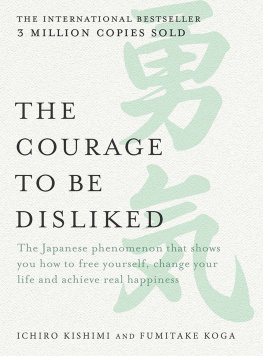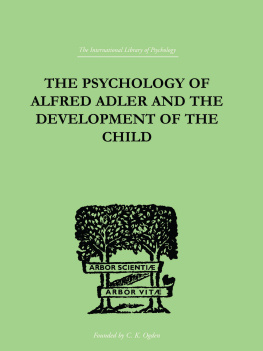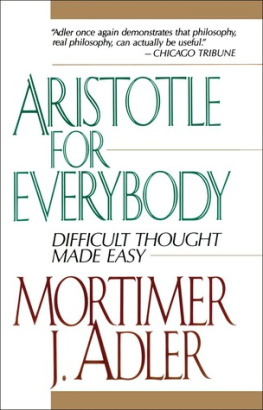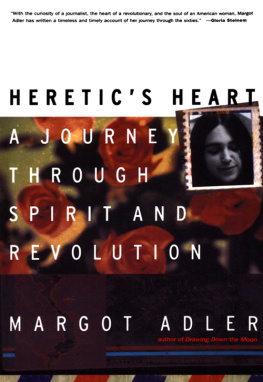

Ichiro Kishimi was born in Kyoto, where he still lives, in 1956. He has aspired to become a philosopher since his days in high school. Since 1989, while specialising in Classical Western philosophy with a focus on Platonic philosophy, he has researched Adlerian psychology; he writes and lectures on the subject and provides counselling for youths in psychiatric clinics as a certified counsellor and consultant for the Japanese Society of Adlerian Psychology. He is the translator, into Japanese, of selected writings by Alfred AdlerKojin Shinrigaku Kogi (The Science of Living) and Hito wa Naze Shinkeisho ni Naru no ka (Problems of Neurosis)and he is the author of Adora Shinrigaku Nyumon (Introduction to Adlerian Psychology), in addition to numerous other books.
Fumitake Koga, an award-winning professional writer and author, was born in 1973. He has released numerous bestselling works of business-related and general non-fiction. He encountered Adlerian psychology in his late twenties and was deeply affected by its conventional wisdom defying ideas. Thereafter, Koga made numerous visits to Ichiro Kishimi in Kyoto, gleaned from him the essence of Adlerian psychology and took down the notes for the classical dialogue format method of Greek philosophy that is used in this book.
First published in Japan as Kirawareru Yuki by Diamond Inc., Tokyo, in 2013
First published in Australia and New Zealand by Allen & Unwin in 2017
This English edition published by arrangement with Diamond Inc. in care of Tuttle-Mori Agency Inc., Tokyo, through Chandler Crawford Agency, Massachusetts, USA.
Copyright Ichiro Kishimi and Fumitake Koga 2013
Copyright Ichiro Kishimi and Fumitake Koga in this translated edition 2017
All rights reserved. No part of this book may be reproduced or transmitted in any form or by any means, electronic or mechanical, including photocopying, recording or by any information storage and retrieval system, without prior permission in writing from the publisher. The Australian Copyright Act 1968 (the Act) allows a maximum of one chapter or 10 per cent of this book, whichever is the greater, to be photocopied by any educational institution for its educational purposes provided that the educational institution (or body that administers it) has given a remuneration notice to the Copyright Agency (Australia) under the Act.
Allen & Unwin
83 Alexander Street
Crows Nest NSW 2065
Australia
Phone: (61 2) 8425 0100
Email:
Web: www.allenandunwin.com
Cataloguing-in-Publication details are available from the National Library of Australia
www.trove.nla.gov.au
ISBN 9781760630492
eISBN 9781760638016
Internal design by Bookhouse
Set by Bookhouse, Sydney
Cover design: Design by Committee
AUTHORS NOTE
Sigmund Freud, Carl Jung and Alfred Adler are all giants in the world of psychology. This book is a distillation of Adlers philosophical and psychological ideas and teachings, taking the form of a narrative dialogue between a philosopher and a young man.
Adlerian psychology enjoys a broad base of support in Europe and the USA, and presents simple and straightforward answers to the philosophical question: how can one be happy? Adlerian psychology might hold the key. Reading this book could change your life. Now, let us accompany the young man and venture beyond the door.
CONTENTS
The young man entered the study and sat slouched in a chair. Why was he so determined to reject the philosophers theories? His reasons were abundantly clear. He lacked self-confidence and, ever since childhood, this had been compounded by deep-seated feelings of inferiority with regard to his personal and academic backgrounds, as well as his physical appearance. Perhaps, as a result, he tended to be excessively self-conscious when people looked at him. Mostly, he seemed incapable of truly appreciating other peoples happiness, and was constantly pitying himself. To him, the philosophers claims were nothing more than the stuff of fantasy.
YOUTH: A moment ago, you used the words another philosophy, but Ive heard that your specialty is in Greek philosophy.
PHILOSOPHER: Yes, Greek philosophy has been central to my life ever since I was a teenager. The great intellectual figures: Socrates, Plato, Aristotle. I am translating a work by Plato at the moment, and I expect to spend the rest of my life studying classical Greek thought.
YOUTH: Well, then what is this other philosophy?
PHILOSOPHER: It is a completely new school of psychology that was established by the Austrian psychiatrist, Alfred Adler, at the beginning of the twentieth century. In this country, it is generally referred to as Adlerian psychology.
YOUTH: Huh. I never would have imagined that a specialist in Greek philosophy would be interested in psychology.
PHILOSOPHER: Im not very familiar with paths taken by other schools of psychology. However, I think it is fair to say that Adlerian psychology is clearly in line with Greek philosophy, and that it is a proper field of study.
YOUTH: I have a passing knowledge of the psychology of Freud and Jung. A fascinating field.
PHILOSOPHER: Yes, Freud and Jung are both renowned. Even here. Adler was one of the original core members of the Vienna Psychoanalytic Society, which was led by Freud. His ideas were counter to Freuds, and he split from the group and proposed an individual psychology based on his own original theories.
YOUTH: Individual psychology? Another odd term. So, Adler was a disciple of Freuds?
PHILOSOPHER: No, he was not. That misconception is common; we must dispel it. For one thing, Adler and Freud were relatively close in age, and the relationship they formed as researchers was founded upon equal footing. In this respect, Adler was very different from Jung, who revered Freud as a father figure. Though psychology primarily tends to be associated with Freud and Jung, Adler is recognised throughout the rest of the world, along with Freud and Jung, as one of the three giants in this field.
YOUTH: I see. I should have studied it more.
PHILOSOPHER: I suppose its only natural you havent heard of Adler. As he himself said, There might come a time when one will not remember my name; people might even have forgotten that our school ever existed. Then he went on to say that it didnt matter. The implication being that if his school were forgotten, it would be because his ideas had outgrown the bounds of a single area of scholarship, and become commonplace, and a feeling shared by everyone. For example, Dale Carnegie, who wrote the international bestsellers How to Win Friends and Influence People and How to Stop Worrying and Start Living, referred to Adler as a great psychologist who devoted his life to researching humans and their latent abilities. The influence of Adlers thinking is clearly present throughout his writings. And in Stephen Coveys The 7 Habits of Highly Effective People, much of the content closely resembles Adlers ideas. In other words, rather than being a strict area of scholarship, Adlerian psychology is accepted as a realisation; a culmination of truths and of human understanding. Yet Adlers ideas are said to have been a hundred years ahead of their time, and even today we have not managed to fully comprehend them. That is how truly ground breaking they were.
YOUTH: So, your theories are developed not from Greek philosophy initially, but from the viewpoint of Adlerian psychology?
Next page











